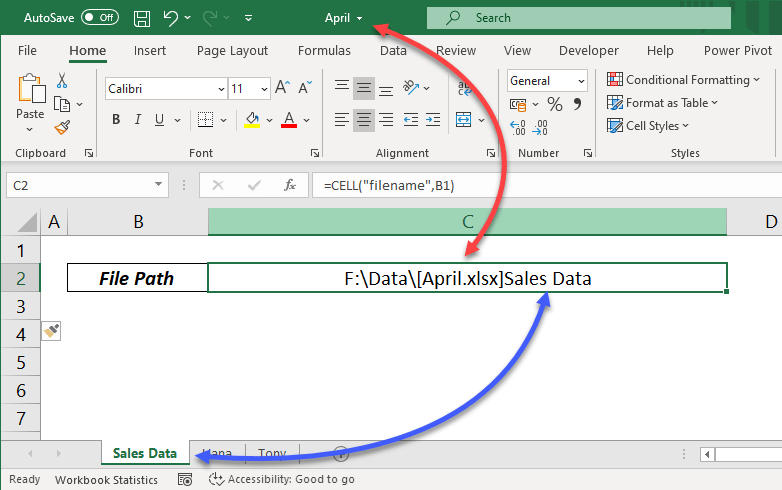Paperwork
How Long Should You Keep Paperwork After Someone Dies?

<p>Losing a loved one is an emotionally challenging experience, and the last thing on your mind during this time might be administrative tasks like sorting through their documents and paperwork. However, handling the financial and legal affairs of the deceased is crucial, both for closure and to ensure compliance with legal requirements. In this comprehensive guide, we delve into the specifics of how long you should keep different types of paperwork after someone passes away, ensuring that you manage this process with respect and in alignment with legal obligations.</p>
<h2>Immediate Steps After Death</h2>
<p>When someone passes away, there are immediate steps to take:</p>
<ul>
<li><strong>Obtain Death Certificates:</strong> Multiple copies are often needed for closing accounts and processing various requests.</li>
<li><strong>Notify relevant parties:</strong> Inform institutions like banks, insurance companies, and utility providers of the death.</li>
<li><strong>Access the Deceased’s Papers:</strong> Look for wills, trusts, insurance policies, financial statements, and any other important documents.</li>
</ul>
<h2>Types of Paperwork and Their Retention Periods</h2>
<h3>Estate Documents</h3>
<p>The documents related to the deceased's estate can include:</p>
<ul>
<li><strong>Wills and Trusts:</strong> These should be kept indefinitely. They are essential for any estate distribution disputes or legal issues that might arise.</li>
<li><strong>Life Insurance Policies:</strong> Retain until the policy is settled, usually within a few years after the claim is processed.</li>
<li><strong>Powers of Attorney:</strong> Keep until the estate is settled, as they might be required for financial transactions or legal proceedings.</li>
<li><strong>Executor’s Records:</strong> Indefinitely, to document how the estate was managed.</li>
</ul>
<h3>Financial Documents</h3>
<p>Financial paperwork needs careful handling:</p>
<ul>
<li><strong>Tax Returns:</strong> Keep for at least 7 years due to IRS audit potential; indefinitely if any disputes are ongoing.</li>
<li><strong>Bank Statements:</strong> Retain for 6 years for tax purposes; longer if they relate to business or estate transactions.</li>
<li><strong>Retirement Accounts:</strong> These records should be kept until they are fully distributed.</li>
<li><strong>Investment Documents:</strong> Hold onto these until all transactions are completed.</li>
</ul>
<h3>Legal Documents</h3>
<ul>
<li><strong>Marriage Certificates, Divorce Decrees:</strong> These might be needed indefinitely, especially if they impact property or support issues.</li>
<li><strong>Property Deeds:</strong> Retain as long as property is owned.</li>
<li><strong>Death Certificates:</strong> Keep several copies indefinitely; they are often required for various closures or claims.</li>
</ul>
<h3>Medical and Funeral Records</h3>
<p>While less directly related to finance, medical and funeral records have their own retention periods:</p>
<ul>
<li><strong>Medical Records:</strong> Keep for at least 1 year if related to a medical insurance claim, longer if disputes arise.</li>
<li><strong>Funeral Receipts:</strong> Hold onto these for tax deduction purposes; at least 6 years.</li>
</ul>
<p class="pro-note">💡 Note: For sensitive documents, secure storage or shredding should be considered after the retention period to prevent identity theft or fraud.</p>
<h2>Organizing and Storing Documents</h2>
<p>To manage the paperwork effectively:</p>
<ul>
<li><strong>Create an Inventory:</strong> List all documents you have and organize them by category.</li>
<li><strong>Use Folders and Labels:</strong> Clearly label folders or binders with document types and retention periods.</li>
<li><strong>Choose Secure Storage:</strong> Use fireproof safes or lockboxes for critical documents; consider digital backups for long-term storage.</li>
<li><strong>Digital Records:</strong> Scan physical documents and store them securely online, ensuring backups are maintained.</li>
</ul>
<h2>Key Considerations</h2>
<ul>
<li><strong>Stay Organized:</strong> Regularly review and update your document inventory, discarding documents once their retention period is over.</li>
<li><strong>Legal and Tax Advice:</strong> Consult with legal or tax professionals to understand any specific regulations or local laws regarding document retention.</li>
<li><strong>Shredding:</strong> Dispose of sensitive documents securely. Many communities offer shredding events for this purpose.</li>
<li><strong>Empathy:</strong> Understand that this task can be emotionally challenging; take breaks if needed and seek support.</li>
</ul>
<p>Handling the paperwork after a loved one’s passing requires not only understanding the legal aspects but also approaching the task with patience and care. By organizing documents properly and knowing how long to retain them, you respect the deceased's legacy and secure the estate's distribution according to their wishes.</p>
<div class="faq-section">
<div class="faq-container">
<div class="faq-item">
<div class="faq-question">
<h3>Do I need to keep all medical records?</h3>
<span class="faq-toggle">+</span>
</div>
<div class="faq-answer">
<p>No, you typically only need to keep medical records related to insurance claims or legal matters. Discard other medical records after the patient’s death unless there are ongoing issues.</p>
</div>
</div>
<div class="faq-item">
<div class="faq-question">
<h3>Can I shred or dispose of legal documents sooner than recommended?</h3>
<span class="faq-toggle">+</span>
</div>
<div class="faq-answer">
<p>Legal documents should be kept as advised due to potential future needs. Early shredding could create issues if there are any legal or tax disputes later.</p>
</div>
</div>
<div class="faq-item">
<div class="faq-question">
<h3>What should I do with documents after the retention period?</h3>
<span class="faq-toggle">+</span>
</div>
<div class="faq-answer">
<p>Sensitive documents should be shredded or disposed of securely to prevent identity theft. Non-sensitive documents can simply be recycled or disposed of at your discretion.</p>
</div>
</div>
</div>
</div>



